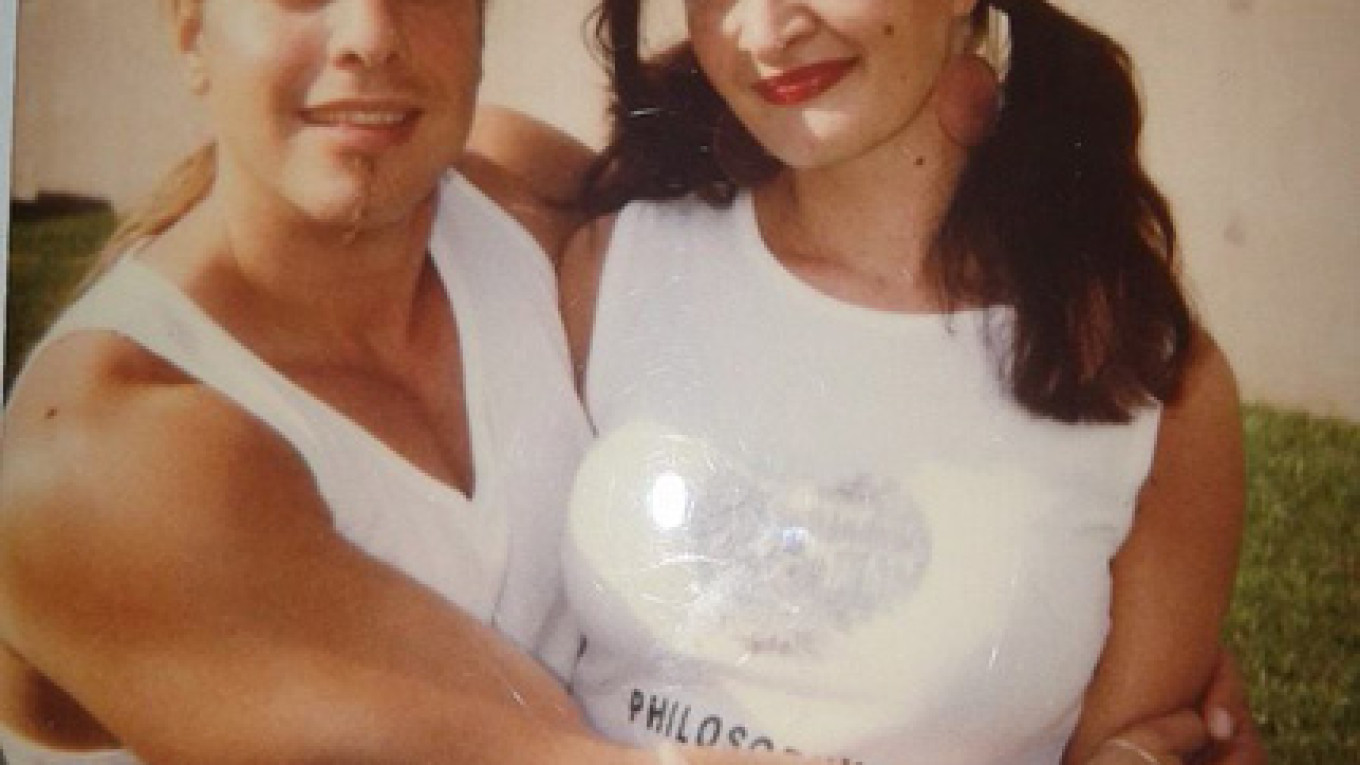On my first day of 10 years and three months spent in the prisons of New York state, a man came to the bare cell I was locked in. He gave me an envelope of coffee, a handful of tea bags, a newspaper, a few candy bars and shower slippers. Fearing the worst and remembering the awful things I had heard about the consequences of accepting gifts in prison, I wouldn't touch any of it until he told me where this bounty came from. The porter simply chuckled and said not to worry about it: The Russians in the facility had found out that a "brother" had arrived. And so began my uncanny journey into the underworld of Russian zeks (a Soviet abbreviation for prisoner) in New York prisons.
I was serving a sentence for robbery, of which I was indeed very guilty. In less than two years, heroin addiction had taken me from my desk at a literary agency in New York to a shop at closing time with a pocketknife in my hand. I had committed five robberies, gotten away with them, and then got caught on a fluke a few months later.
I did my minimum and was released earlier this year. Although many of the prisoners I knew over the years still write to me, none of them are the Russians I met. We just didn't have that much in common. But each of the 12 joints in New York I spent time at had its own little community of spitting, crouching, smoking, tattooed Russian zeks. They didn't fit in with the whites, the blacks or the Hispanics — they made up their own distinct category.
Straight From the Zone
A lot of the Russian prisoners in U.S. jails had also been in Russian "zones," notoriously violent correctional labor camps, so they lived according to principles learned there. They replicated the hierarchies and rules developed by Russian convicts two centuries ago and fine tuned during Stalinist times. They tattooed each other with the symbols that had meaning in Siberian labor camps and brewed "chifir," the very strong tea that gets you high on caffeine.
The Russians who sent me the slippers were disappointed when they actually met me. They spent their days reading trashy Russian paperbacks about thieves-in-law and had been hoping for a real veteran, not an intellectual Jew who was as out of place in their community as he was in prison. When I first arrived, I couldn't speak their language, the slang known as "fenya." I also couldn't spit my cigarette out from a distance like they did, or crouch for hours on end. I used the formal 'Vy'? pronoun when speaking to them and was really bad at cursing. Imagine my dismay when they not only let me keep the slippers but also embraced me as a "zemlyak," or homeboy, despite the fact that I was born in Manhattan.
My father had taught me the language well enough that these guys thought I was Baltic, but I was no criminal "avtoritet." They would have preferred someone with nautical stars tattooed on both shoulders and knees, hands covered in inked rings, a church tattooed on his back and a colorful "zona" (prison) record. I couldn't give them that — though I could and did sing the Soviet anthem with them when they were in the mood.? ? ?

Genis, now a free man, lives in Brooklyn with his wife and writes widely about his time in the U.S. prison system.
Join the Club
The Russians had their own table in the prison, headed by Dmitry, who also happened to be the most intellectual of the bunch. But he was also an accomplished criminal. He'd shot a police helicopter down over Brooklyn, and by the time I arrived he had already been sitting at that table for 15 years, with five more to go.
The American prisoners could not pronounce any Slavic, Caucasian or Tatar names, and the trend was to have a nickname based on origin anyway, so most of these men were simply called "Russia" by their fellow inmates. It amused me that the handful of Czechs, Slovaks, Bulgarians and prisoners from the former Yugoslavia were all mostly called "Russia" too. Considering post-war history, I wondered if they resented this, but when I asked they said it was easier to go with it than explain history to the ignorant.
Among us, and at Dima's table, there were about 15 people, and we all referred to each other by place of origin as well, only from within Russia. Thus we had Mongol and Uzbek and Tatarin and Alex Chechenski (Alex the Chechen) and Alex Ukrainski (Alex the Ukrainian) and Sibir. I suppose I could have been "Latvian," but I never used anything but my own name, as did Dmitry.
Most of these men had immediately killed someone or robbed something upon immigrating. As a result they had plenty of Russian prison experience, plenty of time in American joints, and almost none in actual America. Some spoke no English; others learned only American Black English, called "Ebonics" in the '90s.
Every meal I ate was accompanied by the sight of a Georgian gangster speaking black slang with a Russian accent. The bastard always sat right across from me. He had fled Armenia for Georgia and then seen war there in the '90s. He had been in Brooklyn for only a year before stabbing a man in the chest in some shoddy nightclub and getting locked up. He had never been to an American school or baseball game, or even to Manhattan for that matter. But he had spent seven years in American prison by then, and somehow had managed to join the Latin Kings, a Hispanic gang. Being ethnically Georgian, he could pass for being Hispanic as long as he didn't utter a word.
Warring Factions With Remnants of a Soviet Dream
Almost all of the Russians in New York state prisons are classified as Jews, which is almost always untrue. But that's how you get to Greenhaven Correctional Facility, where the hot kosher kitchen is, as well as Dmitry's table. If I had to guess, that's where the highest concentration of Russians in a New York state prison was, and while I was there, for four years, there were enough Russians for two rival factions.
The rivalry at Greenhaven was over unpaid heroin and had nothing to do with politics. The world we lived in was so far removed from what was going on outside that even during the shocking, bloody attack on a Beslan school by Chechen rebels in 2004, Alex Chechenski sat at our table and played chess with us. Slava the Uzbek may have looked very un-Russian, but he spoke only Russian and "fenya," the languages of the Tashkent housing projects he had once terrorized. The Soviet dream of a "friendship between nations" had finally come to life in an American prison yard.
Even religious life in New York's prisons resembled Soviet life, more so than today's resurgence of Orthodoxy in Russian prisons. There are no Orthodox churches in New York state prisons, just a set of traveling priests who visit the Greeks and Russians. Many of the Russophones are Muslim, some even Buddhist. But nobody really cared about faith except for one fellow I remember, who couldn't speak English but had taught himself Hebrew just to read the Torah. He was serving 50 to life for killing two prostitutes.
I was by far the best English speaker and as a result wrote many, many letters. Many of them were to Washington, efforts to halt the deportation process. I had to write about Kyrgyz nationalism and Kazakh anti-semitism and the horrors of Belarussian President Alexander Lukashenko's Stalinist state. I don't think the State Department even bothered to read any letters with return addresses from prisons, but it was fun to finally deploy my considerable interest in the remnants of the empire in a meaningful way.

A Ruthless Reputation
Because of the many post-Soviet conflicts that engulfed the former U.S.S.R., not to mention the various horrors of average Russian life in general, the Russians in American prisons were no strangers to violence. White men are a minority in New York state prisons; despite being the largest proportion of the population of the state, they are behind blacks and Latinos in incarcerated numbers. Being part of a minority and representative of what many of the more militant black prisoners see as the oppressive class, whites have it a bit harder in the joint and have to prove themselves capable of violence just to be left alone. I myself once had to stick someone with an antenna, and luckily, that incident was sufficient to carry me through to the end of my time.
Russians are mostly excluded from the class of whites, even though some of them act out by tattooing swastikas and SS bolts on themselves. Thanks to the depiction of Russian criminals as brutal monsters in American media, Russian inmates are generally given plenty of room. But they often do live up to the media's expectations.
I remember one skinny little guy from Minsk who used his drafting pencil to attack a big black man, leaving him with a face quite unlike the one he'd had before. Things like that only solidify the fearsome reputation that Russians uphold in the American prison system. Maybe a macho fellow like Vladimir Putin would be proud, but I eventually realized that as a whole, these guys were not for me.
In my first prison I had sat at the Russian table, but by my second, when I already had four years in, I only disclosed the fact that I spoke another language after making sure that there was less of a gangster's scene there. By then, I knew how to curse and spit out a cigarette like a proper Russian zek, although the crouching still hurt my knees. But just because I could do it doesn't mean I liked any of it.
Russian writer Alexander Solzhenitsyn describes the "urki," or Russian career cons, with the same horror I felt for them. Another Gulag chronicler, Varlam Shalamov, humanizes them in his stories. I came to the conclusion that while it is interesting to meet the monsters straight out of Andrei Sinyavsky's prison tales, I didn't have to share my meals with them. And I no longer did.
But as I moved from prison to prison for the next six years, I met a fair sampling of the incarcerated Russian population. The total population of New York state prisons is currently 58,000. It is hard to estimate how many have roots in the Soviet realm, but I would guess from 200 to 300.
So it was pretty standard to hear things about each other, about how One-Ear Boris stabbed a cop and got five years in solitary, or how Misha Beszuby (Toothless) had gone on a hunger strike. The jailhouse grapevine provided me with plenty of updates, and none were ever good. I think it is fair to say that the Russians in American prisons are men who genuinely belong in prison. Alex Chechenski, for one, had done time in four countries, including Israel.
There were exceptions, however.
Russian Luck
Vovik had the worst case of Soviet dentistry I had ever seen. All of his teeth were different shades of metal; I think one was actually rusting. He was a Siberian peasant who spoke a rather estranged form of Russian and not a lick of English. Literate, but not very. In that prison, the only other Russian speaker was a nasty kid from Moscow who had an Algerian father and a taste for opiates. He refused to help the lowly Vovik in any way but I didn't mind the job. He was 50, looked 60, and his life in America had been totally destroyed by macaroni and cheese.
As soon as I got to know him, I had to ask how a person like him, who had spent years in? Ukraine feeding his family by hunting down the neighborhood dogs, had even immigrated. It turned out that his wife, a woman of limited intelligence, had been converted to Pentecostalism by American missionaries in the hungry years of the 1990s. Then they applied for refugee status along with their entire village, and got sent to Utica, New York. Vovik didn't even believe in God, but having lived rough back in Siberia and later in Ukraine, he didn't mind the move to upstate New York. They brought their two boys with them.
Vovik worked as an asbestos removal man, a job that pays well only because it destroys the lungs of the people who do it. After work he usually had a drink, something a man of his background feels is his duty. He had no stars tattooed on him, no rings on his fingers, and only a record for public drunkenness. But one day he came home after a hard day at the asbestos site and found that instead of the usual potatoes, his wife had prepared him a plate of what he called "yellow worms." He refused to eat such a thing and banged the table with a knife handle. His wife did what any Russian wife of this sort would do; she ran outside and began weeping hysterically. Unfortunately for Vovik, this wasn't Russia, and an American neighbor called the cops.
Vovik received a sentence of one to three years for "menacing," which is defined by New York's penal code as "putting someone in reasonable fear of physical injury." The angry outburst with the knife also resulted in Vovik being deported, since the crime constituted an "aggravated felony." His wife was already on disability payments for her mental issues, which meant she was not considered fit to raise her two children. They were slated for foster homes. Nevertheless, after Vovik wound up in the joint she visited every weekend and brought Vovik pounds of salo, or pork fat, which we ate with gusto. His life destroyed, he used his sounder metal teeth to chew the salo with garlic cloves and wept. I wrote letter after letter on his behalf to various agencies, but to no avail. American justice and Russian ways just do not see eye to eye. We grimly chewed our salo. What else could I do but weep with him?
Daniel Genis is a writer with The Daily Beast and Vice, and a guest columnist for Newsweek, Paris Review and the New York Daily News. His memoir and novel will soon be released and he lives in Brooklyn with his wife.
Contact him at newsreporter@imedia.ru
A Message from The Moscow Times:
Dear readers,
We are facing unprecedented challenges. Russia's Prosecutor General's Office has designated The Moscow Times as an "undesirable" organization, criminalizing our work and putting our staff at risk of prosecution. This follows our earlier unjust labeling as a "foreign agent."
These actions are direct attempts to silence independent journalism in Russia. The authorities claim our work "discredits the decisions of the Russian leadership." We see things differently: we strive to provide accurate, unbiased reporting on Russia.
We, the journalists of The Moscow Times, refuse to be silenced. But to continue our work, we need your help.
Your support, no matter how small, makes a world of difference. If you can, please support us monthly starting from just $2. It's quick to set up, and every contribution makes a significant impact.
By supporting The Moscow Times, you're defending open, independent journalism in the face of repression. Thank you for standing with us.
Remind me later.


